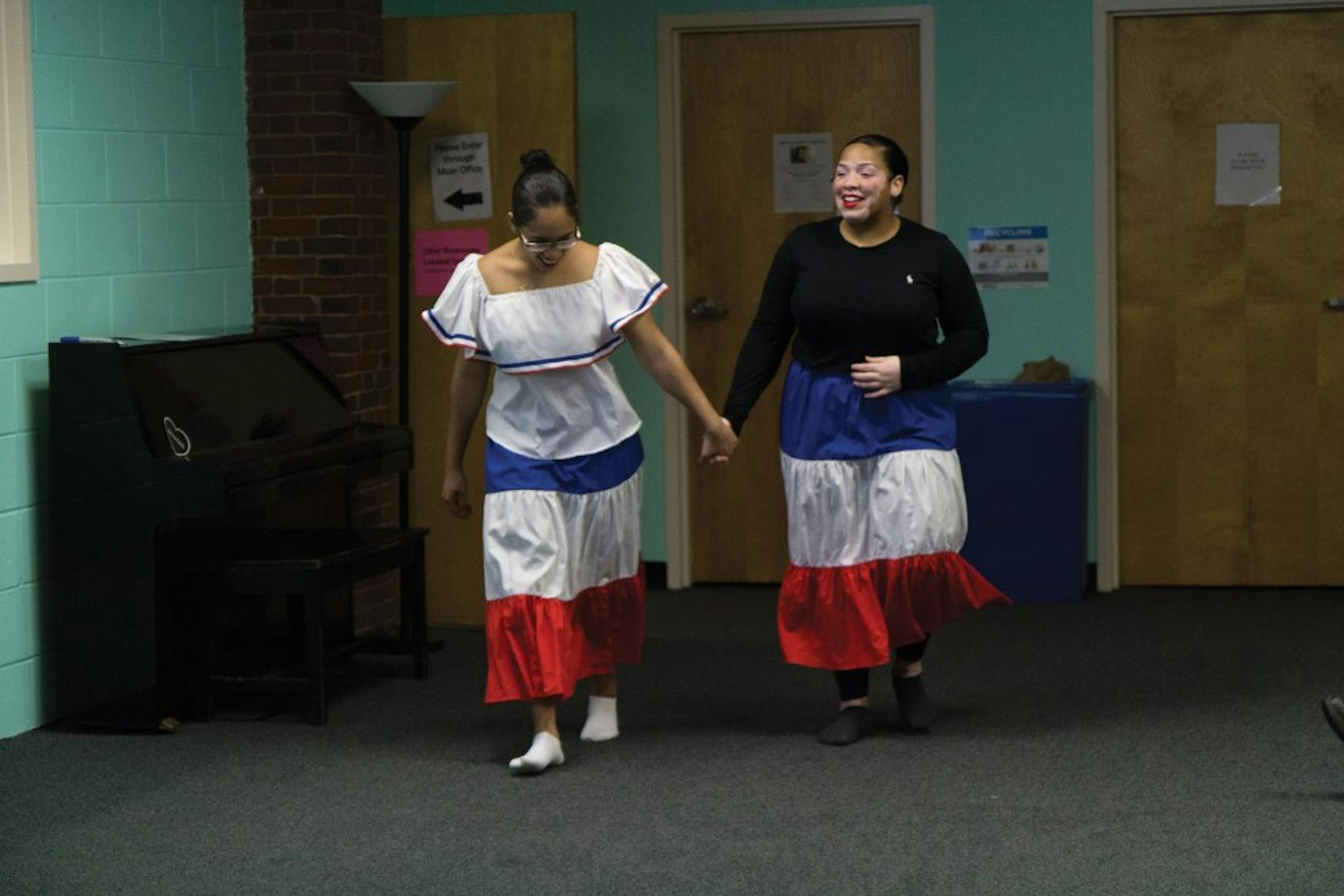Students express pride in their identities
Does your hometown define who you are? Are your intersecting identities all of what make you you? On Oct. 4 at the Intercultural Center, students gathered to reflect on these questions and more through “An Evening of Art, Identity and Lived Experience,” part of the Joseph B. and Toby Gittler Prize Award Presentation and Residency. Throughout the event, students shared poems, dances and artwork that reflected who they are and their unique experiences of self-evaluation and discovery. The works of several students shared themes of racial discrimination and queer identity, and many works also explored moving to Brandeis from a different city, region or even country.
Sponsored by the Martin Luther King Jr. Fellowship and the Myra Kraft Transitional Year Program, “An Evening of Art, Identity, and Lived Experience” began in 2017 and will be an annual event as part of the Gittler Prize celebrations. At the event, several first-year students who had participated in the MKTYP presented art that they have created since coming to Brandeis. The first performer of the night, Daniella Castillo ’22, shared a poem styled after Jamaica Kincaid’s “Cold Girl.” Castillo’s poem, “Perfecta,” was a heart-wrenching piece about being discriminated against as a Dominican immigrant to the United States. She shared how, in America, she could “love [her] country, but not too much,” and was “a guest in someone else’s house.”
Victoria Richardson ’20, the only junior to present, read about being a person of color at Brandeis, a predominantly white institution. In her powerful poem, she described the pressure to code-switch, declaring that speech “is a cultural choice.” Brandeis is her home away from home, she said, and so she “refuse[s] to be uncomfortable.” Richardson is “intelligent, articulate, and also hood.”
Denezhia Fahie’s ’22 poem, a powerful piece about slavery and the commodification of Black bodies, reflected on “lily whites, crimson reds, sky blues,” and noted how “Black bodies always made the perfect muse.”
“Ain’t it a blessing to inherit a palette of privilege?” she asked.
Other student presenters included Kamil Banks ’22, who shared a poem about transitioning from the Bronx to Brandeis; Angel Henriquez ’22, who hopes to transform the District of Columbia into a city “where Blacks and Latinos can thrive;” Catherine Romero ’22, a childhood cancer survivor whose obstacles “did not define her;” Julian Meraz ’22, who shared artwork about intersecting identities and struggles but concluded that “life is short, so enjoy it!”; Michala Coates ’22, who is “too loud, too gay, too Black, too proud,” but “still here!;” Giselle Urena ’22 and Nikky Polanco-Diaz ’22, who danced to Johnny Ventura’s “Merenguero Hasta La Tamba” and Jackie Rodriguez ’22, who joked about her heritage before her refrain “moving on, because that’s what we do best!”
Introduced by emcee Chari Calloway ’19, Dr. Kathryn Bethea, the director of the MKTYP, congratulated all participants before sharing her own poems. As she read “Come on in, empathy,” the room fell silent, rapt, and she was greeted with cheers of “yeah, mom!” afterward. In an interview with the Justice, Bethea said the event was a way for students to be creative “in ways that they might not have thought possible.” Elizabeth Botolo, assistant director of Academic Fellowships, added that she hopes the enthusiasm of the evening will “translate … to the rest of campus” and encourages students to express themselves in any space.

The event’s capstone was a speech by Dr. Beverly Daniel Tatum, recipient of the 2018 Gittler Prize. In her speech, Tatum spoke about her personal ABCs: “affirming identity, building community, cultivating leadership.” She said, “One of the things that was really incredible about this evening as I experienced it was people bringing their whole selves and being able to express that.” To Tatum, students creating a space to share who they are without “concern about how others are perceiving [them]” made the evening special, and she expressed gratitude that she could share in the joy of their unapologetic self-expression.




Please note All comments are eligible for publication in The Justice.